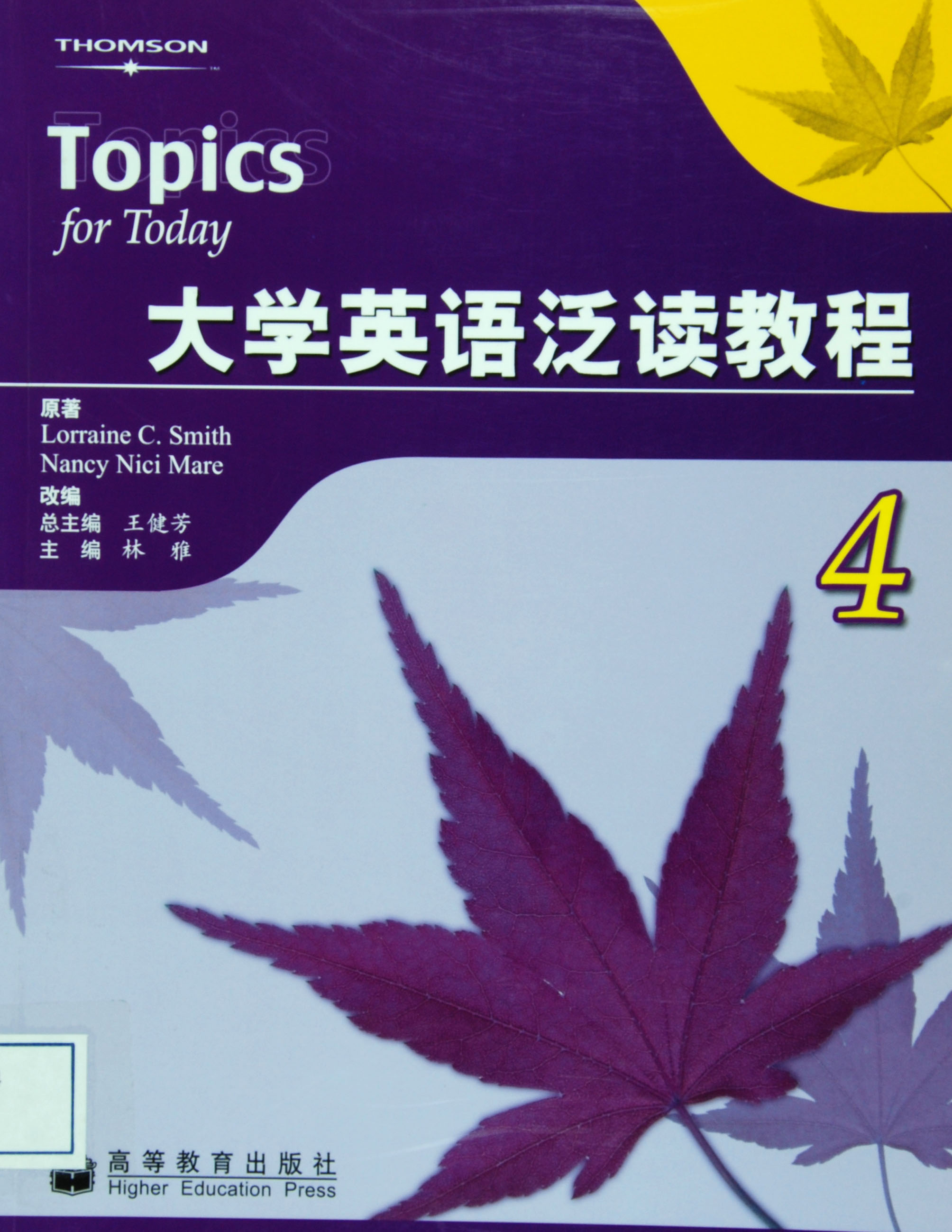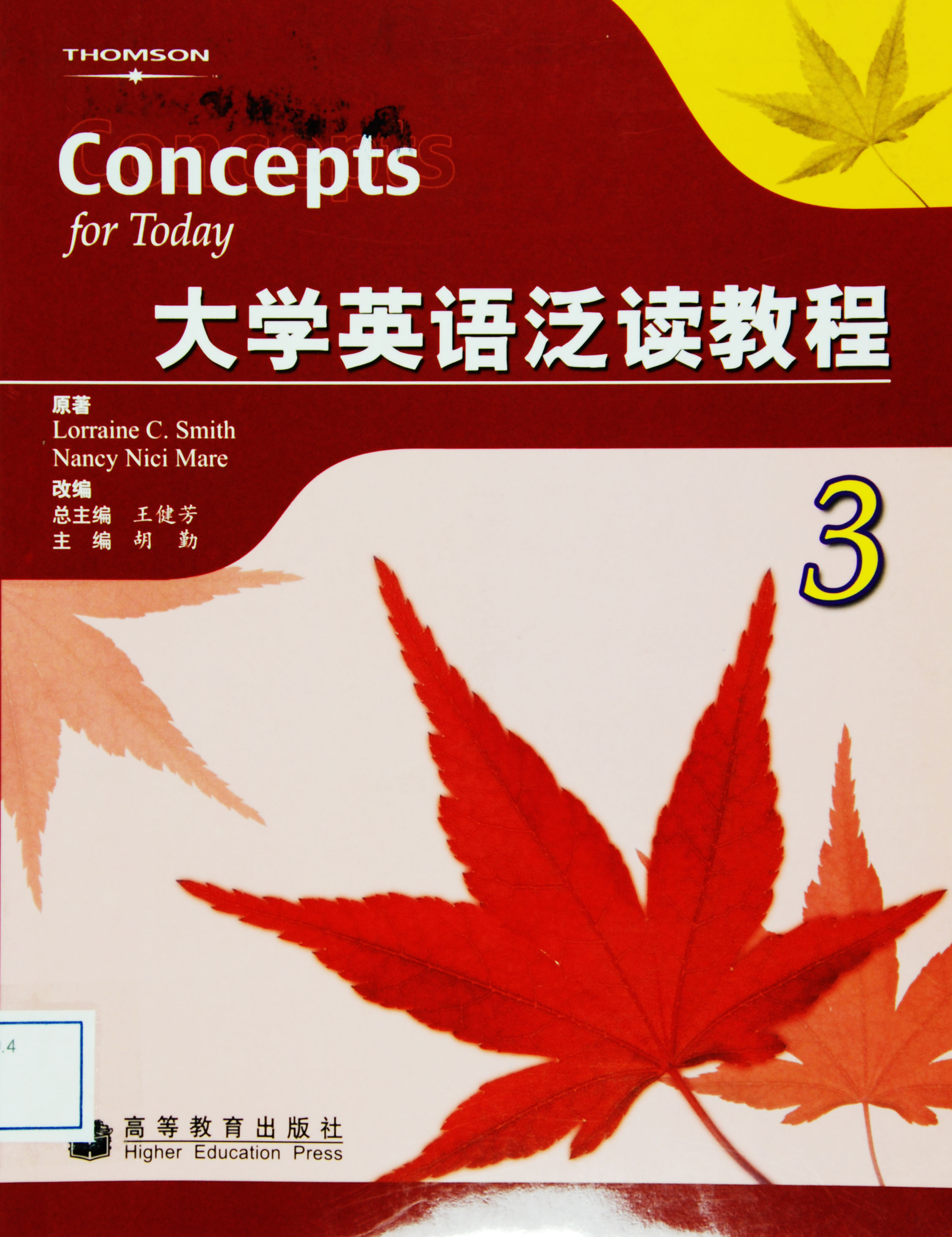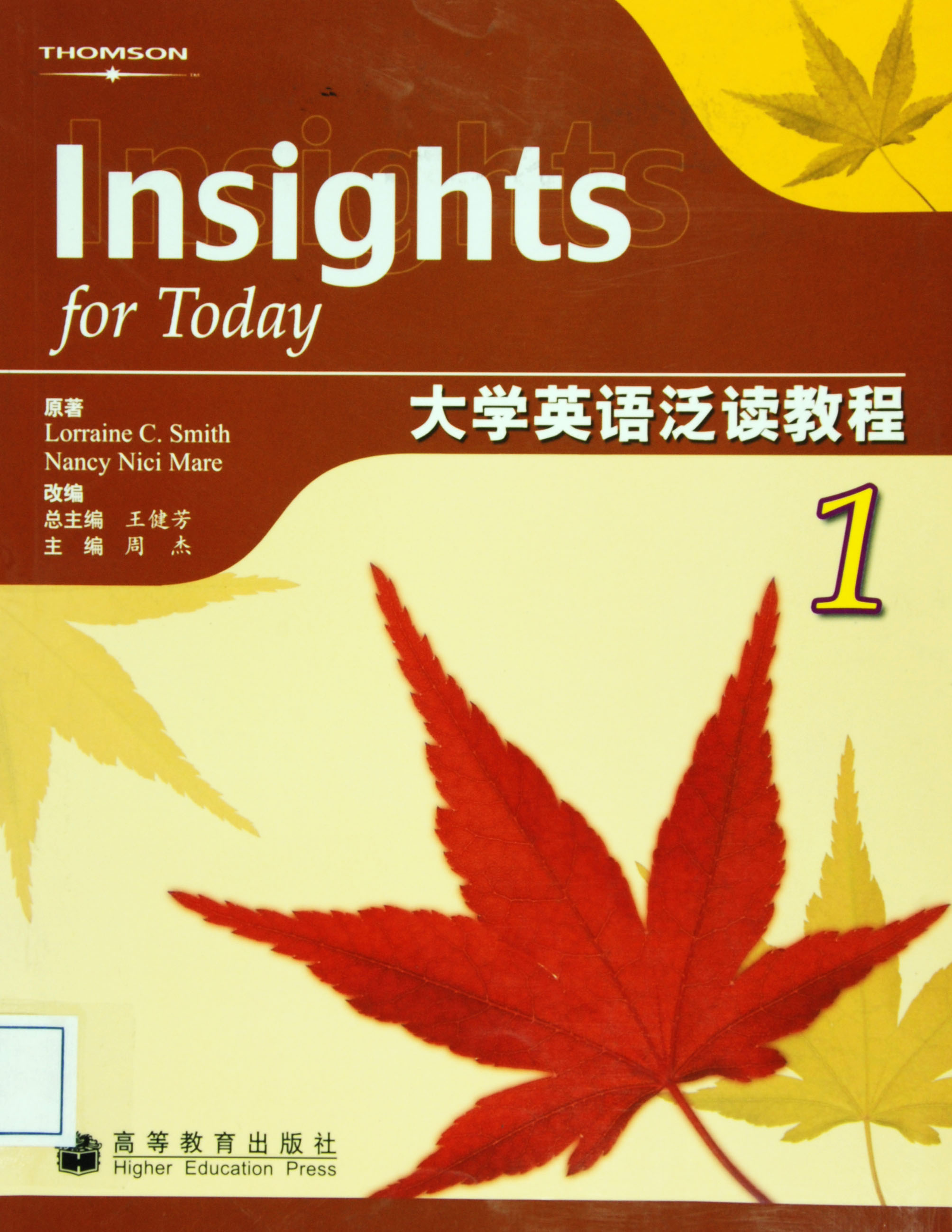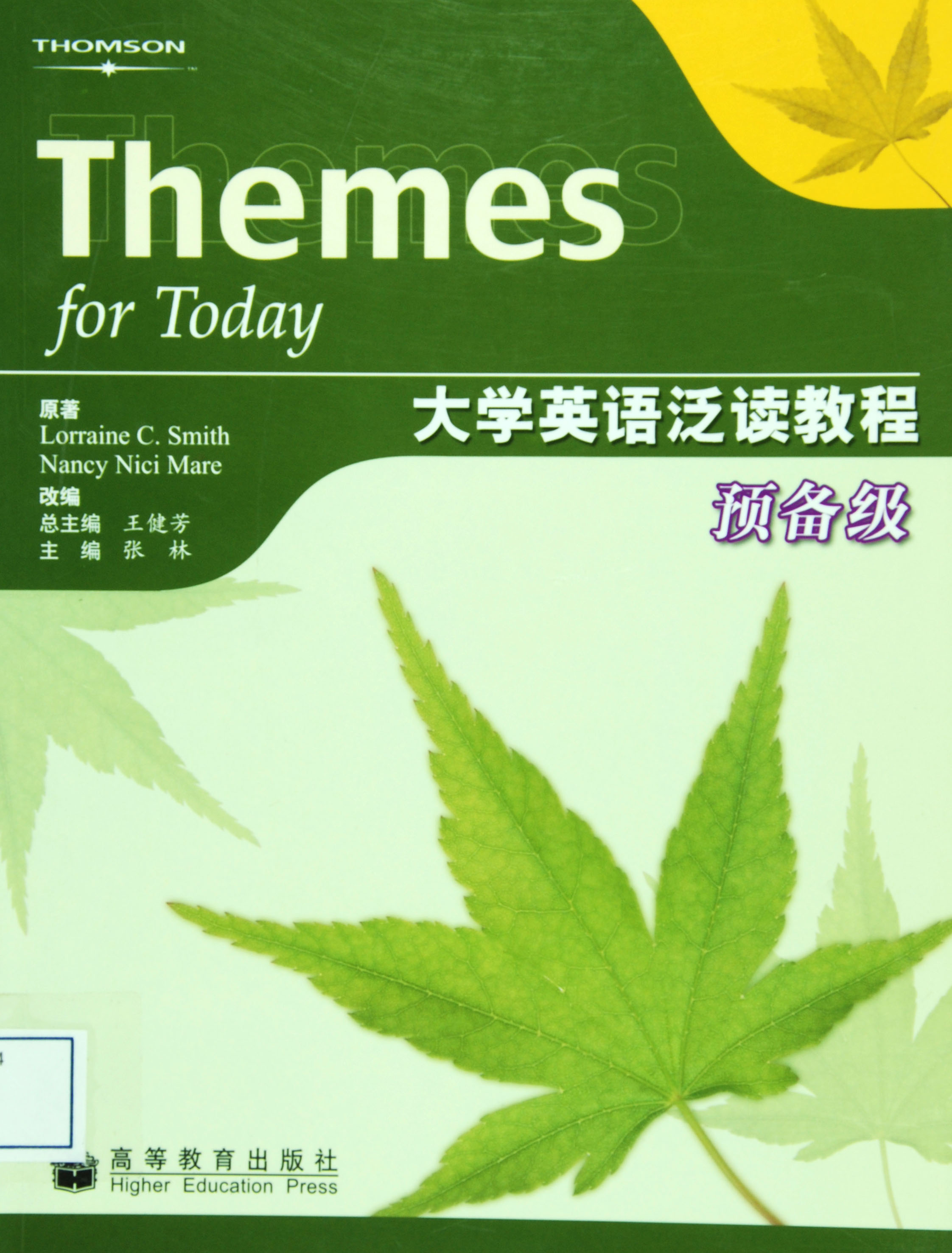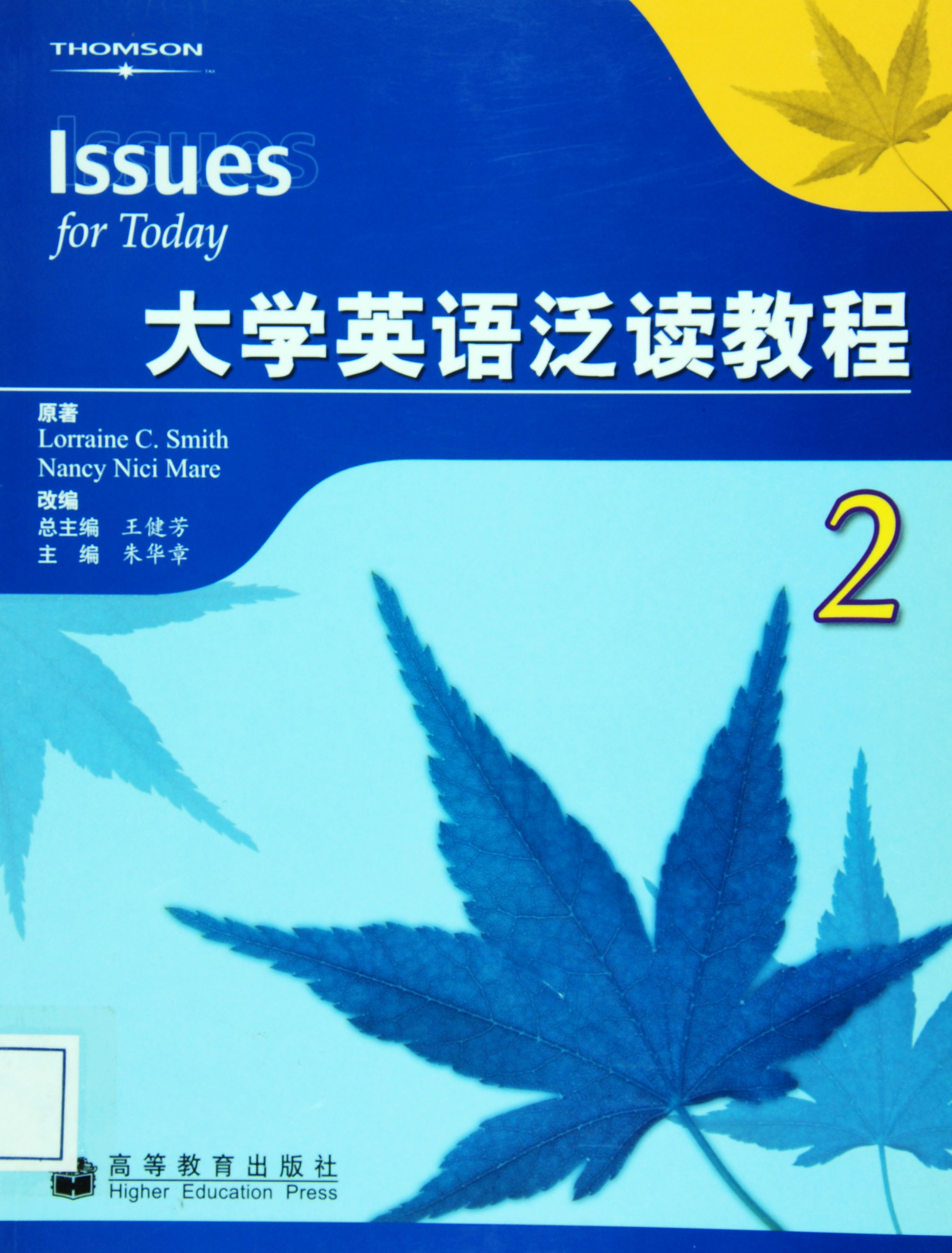大学英语泛读教程4 / 大学英语泛读教程
作者: Lorraine C. Smith著,王健芳改
出版时间:2006-02-15
出版社:高等教育出版社
- 高等教育出版社
- 9787040175912
- 1
- 247342
- 平装
- 16开
- 2006-02-15
- 360
- 236
UNIT 1: Society: School and Family 1
Chapter 1
Hop, Skip... and Software?
by Victoria Irwin, in Christian Science Monitor Today, many young students use computers. Educators disagree on whether computer use makes these students better learners.
Program to Bring Laptop Computers to Rural Schools
by Melissa Nelson, in Associated Press 7000 public school teachers and students in rural Arkansas will soon receive laptop computers. The computers will replace textbooks and library books.
Chapter 2
My Husband, the Outsider
by Marian Hyun, in Newsday Marian's Korean relatives wanted her to marry, but not necessarily to the man she chose.
Unwelcome in Chinatown
by Amy Wu, in The New York Times Amy looks Chinese, but does not speak Chinese. She feels like a stranger in Chinatown.
Chapter 3
Beyond Rivalry
by Elizabeth Stark, in Psychology Today As they age and become more mature, many sisters and brothers become closer as they put aside feelings of competition and anger.
Middle Children and Their Position in the Family
by Dr. Kevin Leman, in Living in a Step Family Without Getting Stepped On Birth order can influence the development of a child's personality and the way that child interacts with his or her siblings as well.
UNIT 2:Influences on Our Lives: Nature Versus Nurture
Chapter 4
Who Lives Longer?
by Patricia Skalka, in McCall's Most of us know that, on average, women live longer than men. What other factors influence how long people live?
Coping with Crisis
How to cope with crisis? Hold your head high, look it squarely in the eye and say, "I will be bigger than you. You cannot defeat me."
Chapter 5
The Mindset of Health
by Ellen J. Longer, in Mindfulness The way we think about health and illness influences how our bodies respond. Can we "think"ourselves into illness?
How to Behave in a Hospital by Gloria Emerson, in American Health
Should we be active about our treatment and ask questions? Or should we be quiet and passive, accepting whatever comes? The answer may surprise you.
Chapter 6
Small Wonders
by Andrew Marshall, in Time Asia Are child prodigies bom or made? A reporter searches for answers to this fascinating question about "superkids."
Reading at 8 Months? That Was Just the Start
by Michael Winerip, in The New York Times Very bright children soon outperform their peers. But what happens when a 13-year-old is ready for college?
UNIT 3:The Environment
Chapter 7
Playing with Fire
by Laura Lopen et al, in Time The burning of the Amazon rain forest by farmers and cattle ranchers involves consequences for the environment all over the world.
Taking Two Steps Back by Mac Margolis, in Newsweek The burning of the Amazon rain forest decreased temporarily, but an improvement in the economy, coupled with a dry period, has led to an increase In the practice.
Chapter 8
Wilder Places for Wild Things
by Sharon Begley et al, in Newsweek Today's zoos are creating the sights and sounds of natural habitats. The animals are responding with natural behavior they never exhibited before in zoos.
Predators on the Prowl
by Marc Peyser with Daniel Glick, in Newsweek Many animals, such as the mountain lion, are protected by law. When they attack and kill people, however, the laws are sometimes challenged.
Chapter 9
A Nuclear Graveyard
by Betsy Carpenter, in U.S. News & World Report Nuclear power plants provide much needed power. They also generate nuclear waste. Where can this waste be safely stored?
A Nuclear Graveyard (excerpt)
The U.S. government has chosen Yucca Mountain in Nevada as a "home" for nuclear waste, but not all Nevadans agree with the government's choice.
Word List

